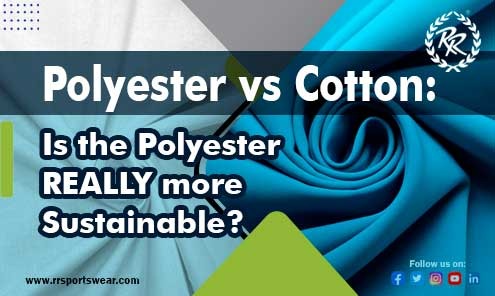-
Bag is empty
-
Bag is empty

Cotton VS polyester?
This is why the cotton-polyester debate is difficult: It is difficult to say whether cotton is actually more sustainable than polyester because they both have different environmental problems. Each of them is better than the other in some respects and much worse in others! To compare the comparison between polyester and cotton fabrics from a correct point of view, you can refer to this sheet: So if polyester and cotton are such problematic materials, does that mean they should always be avoided? Well, we can advise you to look out for their more level-headed counterparts whenever possible.
However, it is stronger than pure polyester because it reduces: So our answer to the debate between polyester and cotton is that neither is durable. So, if possible, consider opting for their recycled and organic counterparts instead. Does the use of plastic bottles and fishing nets make this material more resilient? Let's take a look at how clothing made from virgin polyester compares to clothing made from recycled polyester to find out.
Cotton processing
Cotton fibers are obtained from annual plants and consist of pure cellulose. Cotton fibers have a hollow hole, called a lumen, in the center that runs the length of the fiber. When the pouch opens and the fiber dries in the sun, the light collapses. This dynamic causes the fiber to twist and form coils.
Properties of Cotton
Cotton is comfortable and breathable. It's soft and natural. It's hypoallergenic. All these properties make cotton the natural fiber of choice in non-woven personal care products. Finally, cotton retains its importance and popularity in today's age of environmental concern because it is both sustainable and biodegradable.
What is polyester made of?
Polyester (polyethylene terephthalate) is a chemical reaction involving crude oil, air and water and it’s a thermoplastic. fibers are a solid polymer. These continuous filaments - called "tow" - can be cut to any length (there is no length distribution, all filaments are perfectly uniform) to produce staple fibers for use in woven and nonwoven fabrics, or can be left as fibrous continuous thread.
Properties of polyester
Polyester is water repellent. Because of this, polyester fabrics do not absorb sweat or other liquids, leaving the wearer wet and sticky. Polyester fibers generally have low absorption. Compared to cotton, polyester is more durable and has a higher stretch capacity Eco-conscious buyers refuse to use polyester. Because it is a synthetic fiber derived from petroleum products, polyester is not considered durable or biodegradable.
Problems with polyester:
Cheap fabric, high environmental cost what’s behind the £4 synthetic suit? Plastics, toxic chemicals and fossil fuels to name a few. Find out why polyester and durability rarely go hand in hand. Of course, unfortunately, this does not automatically mean sustainable, but cotton does. Discover the differences between conventional cotton and organic cotton! Project Cece is a platform that brings ethical clothing from different online shops together on one site. Check out RR sportswear shopping section and find clothes that fit your style, budget and value!
If you're concerned about the environmental impact of fashion, you probably spend time reading clothing labels to find out what your clothes are made of. When looking at labels, you don't need a magnifying glass to notice that one material pops up more often than most: polyester. Today we will examine and answer the question: how Sustainable polyester is?
Polyester fabrics did not always exist. Our grandparents dressed in materials of plant and animal origin, such as wool, linen and cotton. At the end of World War II, these accounted for more than 80% of the fibers consumed. The development of chemistry in the 1940s led to synthetic fibers, which ushered in a gradual departure from cotton in favor of cheaper and faster methods of textile production. Today, polyester dominates the apparel industry with an annual production of over 52 million tons worldwide.
Have you ever noticed how dirt-repellent polyester fabrics are? This is because a special type of dye is needed to effectively color polyester. These dyes, called disperse dyes, are insoluble in water. Like polyester, they consist of a complex molecular structure that does not break down easily. Textile mill effluents containing dye residues are difficult to treat. When released into the environment, its toxicity causes serious problems for local flora and fauna.
We wouldn't be surprised if you looked through your wardrobe and found that it's mostly made up of these materials. Cotton and Polyester are the two most popular fabrics! But is it good in terms of durability? And since cotton is a natural fabric, it's certainly more ethical than polyester, right? Polyester is a synthetic (= chemically synthesized) fiber derived from polyethylene terephthalate, a type of plastic.
Right now you might be thinking that the debate between polyester and cotton shouldn't even be an issue. However, most cotton plants are also terrible for the planet!
Subscribe to stay updated on new products and more, straight to your inbox.